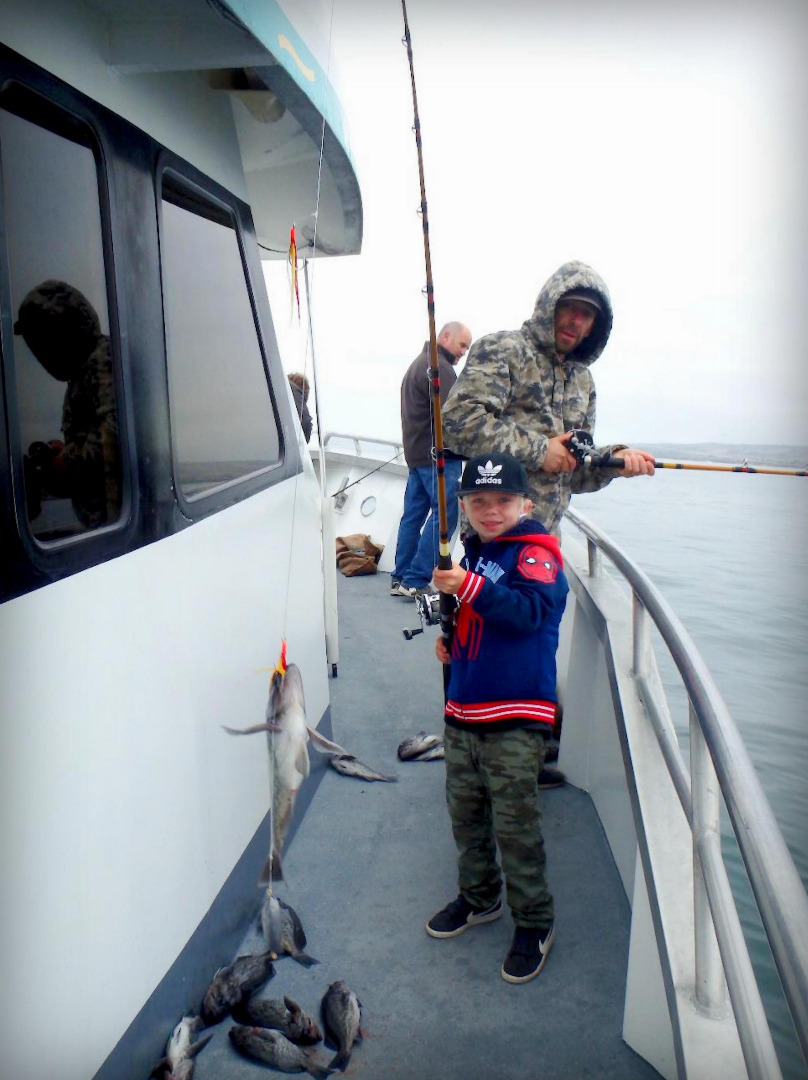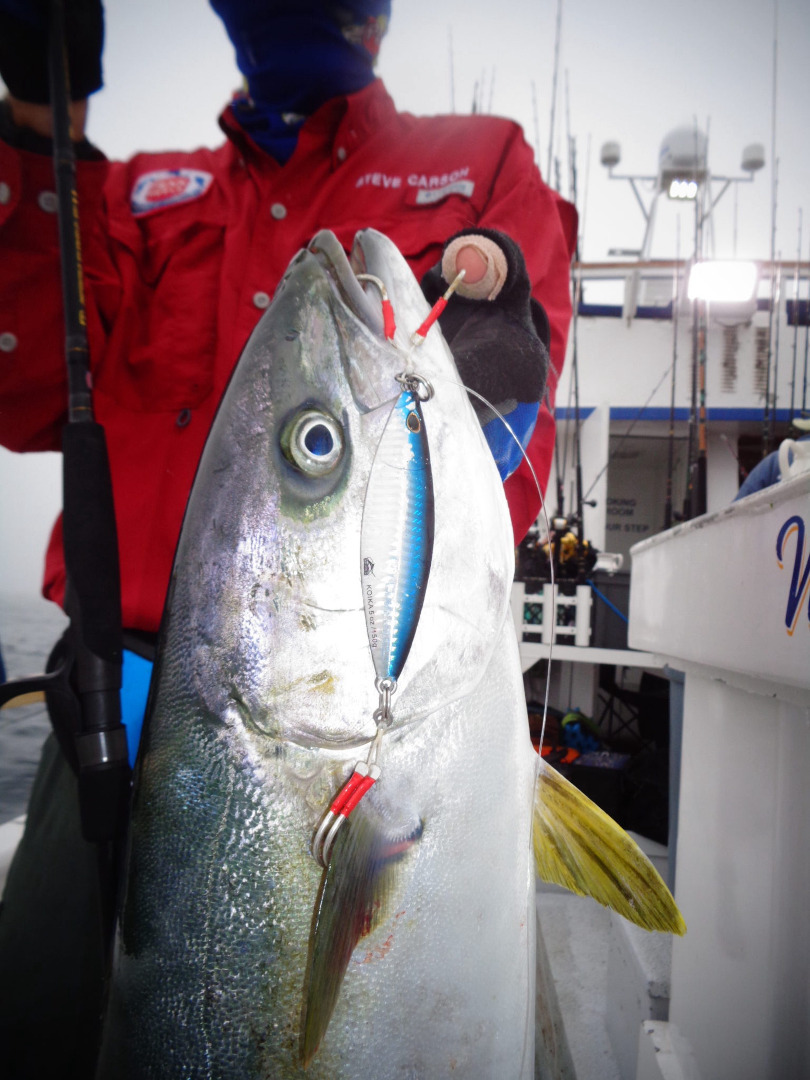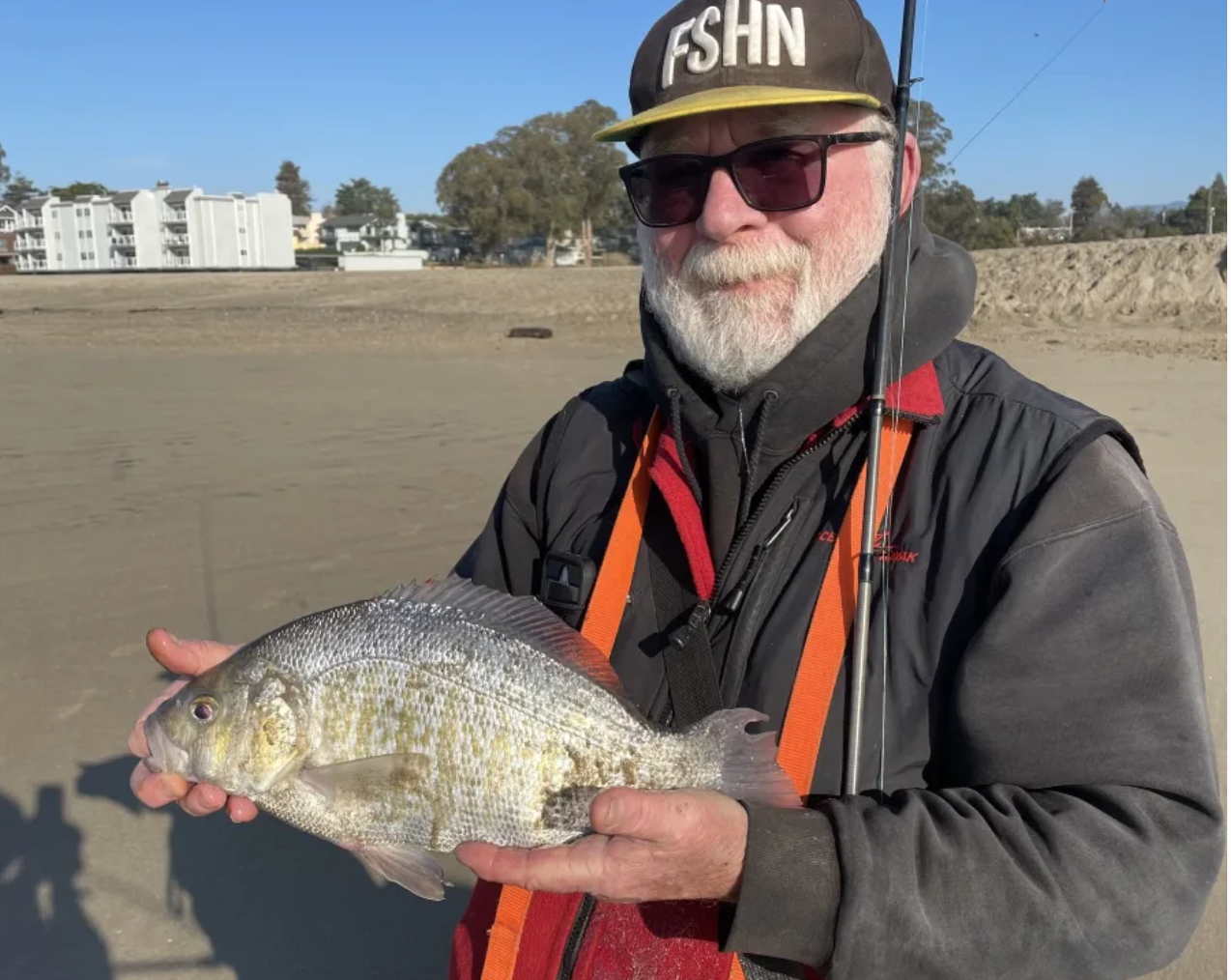Long Range Fish Report
From Sportfishing
From Sportfishing
Fish Report for 1-27-2023

Recreational rockfish season will reopen May 1 this year with some significant changes in store. Anglers like Bowen Call and his father Dan will continue to enjoy good catches of tasty cod from the Monterey Bay.
California Department of Fish and Wildlife announces big changes for rockfishing regulations
1-27-2023
Allen Bushnell
The California Department of Fish and Wildlife has announced big changes for rockfishing regulations in the coming season. Season dates, depth limits and sub-bag limits are all affected by these sweeping revisions for boat based anglers. The adjustments are somewhat complex and the DFW reminds us regulations can be altered at any time during the current season. All anglers are advised to double check current regulations prior to fishing.
First, some good news. From May 1 through September 30 there will be no depth restrictions while rockfishing. Previously limited to 120,180, 240 or 300 feet of water while fishing for rockcod, we can now go as deep as we’d like. This opens up an incredible amount of fishing area in terms of square miles, and also increases the type and variety of rockfish now legal to catch and keep. DFW classifies rockfish into three groups: Nearshore, Slope and Shelf. Nearshore rockfish include the black and yellow, China, gopher, grass and kelp rockfish. “Deeper” nearshore rockfish according to DFW are the blacks, blues, browns, coppers, olives, quillbacks and treefish.
Shelf rockfish are usually found in deeper waters as the continental shelf slopes downward. These are too numerous to completely list here but include some familiar names such as bocaccio, canary and vermilion as well us a plethora of rockfish types that most of us are unfamiliar with such as the squarespot, pinkrose, pygmy, speckled, chameleon and halfbanded rockfish. Slope rockfish are varieties that usually inhabit the deeper areas along the continental shelf. The aurora, bank, darkblotched, sharpchin and splitnose rockfish are all within this classification. If you’re not confused enough yet, the slope rockfish designation also encompasses the “Pacific ocean perch,” which is in fact not a perch at all but perhaps the most misnomered rockfish of all.
So that’s where you can fish. What you can fish for is another story. From October 1 through December 31 no take is allowed for “nearshore” classified rockfish. Skiff and kayak anglers are getting the short end of the stick on this new rule. DFW lists black, black and yellow, blue, brown, calico, China, copper, gopher, grass, kelp, olive, treefish and quillback rockfishes in this category. Significant by omission, this regulation seems to suggest we are still allowed to keep some rockfish varieties commonly located in nearshore waters including vermilion, canary and brown rockfish during this time period. No retention of cabezon or greenling is allowed from October 1 through December 31. No take of lingcod is allowed shoreward of the 50-fathom line (300 feet) for that time period. In addition, No take or possession whatsoever is allowed for bronzespotted rockfish, cowcod or yelloweye rockfish, date or depth notwithstanding. Sub-bag limits will also be in effect during the 2023 rockfish season We are allowed 10 fish in combination except only one copper rockfish per angler, one quillback and four vermilion as a daily sub-bag limit.
The best reference for new regulations and fish identification can be found on the DFW website The site includes printable pdfs with color images of the multiple rockfish varieties we might pull in while fishing our Central Management Area that stretches from Pigeon Point southwards to Point Conception. Https://wildlife.ca.gov/Fishing/Ocean/Regulations/Groundfish-Summary#central
< Previous Report Next Report >
More Reports

1-20-2023
International Sportsmen’s Exposition Show in Sacramento this weekend. The only major fishing and outdoor expo still held in Northern California....... Read More

12-30-2022
The winter weather so far looks very promising for the growing community of surfcasters in the Monterey Bay region. We’ve...... Read More

LongRangeSportfishing.net © 2024. All Rights Reserved.
Website Hosting and Design provided by TECK.net
Website Hosting and Design provided by TECK.net